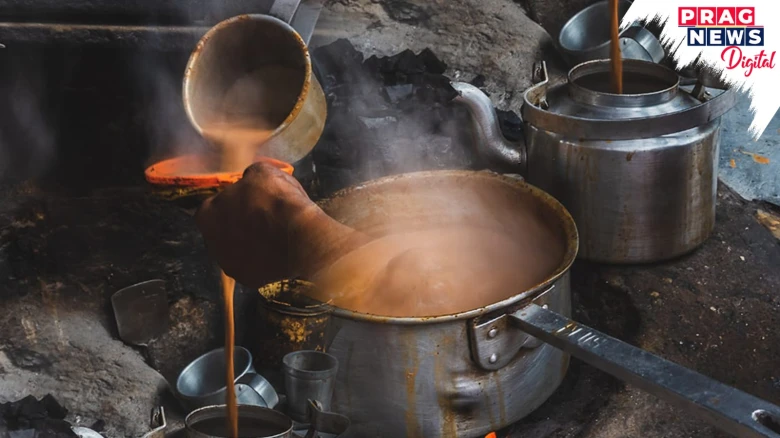While reheating tea might seem like a convenient solution, it comes with significant disadvantages...
Digital Desk: Tea is more than just a drink; it’s a tradition, a comfort, and for many, an essential part of daily life. However, in our busy schedules, it’s not uncommon for a cup of tea to go cold, leading many to simply pop it in the microwave for a quick reheat. But is this harmless habit doing more harm than good? Here’s why you might think twice before reheating your tea.
One of the primary reasons to avoid reheating tea is the loss of its delicate flavor and aroma. When tea is freshly brewed, it releases essential oils and aromatic compounds that give it its unique taste and smell.
However, reheating can cause these oils to evaporate or break down, leaving you with a flat and less enjoyable cup. The nuanced notes that make each type of tea special can be lost entirely, turning what should be a delightful experience into a disappointing one.
Tea is rich in antioxidants, particularly catechins, which are known for their health benefits, including improving heart health and boosting metabolism. Unfortunately, reheating your tea can lead to the degradation of these valuable compounds. Microwaving, in particular, can cause significant nutritional loss, stripping your tea of its beneficial properties. So, not only are you compromising on flavor, but you’re also missing out on the health benefits that come with a freshly brewed cup.
The risk of harmful compounds
Beyond losing flavour and nutrients, reheating tea can also introduce harmful compounds into your drink. When tea is left to cool and then reheated, it can undergo a chemical transformation that leads to the formation of tannins and other compounds that may contribute to digestive discomfort. In some cases, reheated tea has been associated with the formation of nitrosamines, which are potential carcinogens. While the risk is relatively low, it’s still a factor to consider, especially for those who consume tea regularly.
Tea drinking is as much about the experience as it is about the beverage itself. The ritual of brewing and sipping a hot cup of tea is a moment of calm and relaxation on an otherwise hectic day.
Reheating tea, however, can disrupt this experience, reducing it to a mere act of consumption rather than a cherished ritual. Taking the time to brew a fresh cup of tea instead of reheating can enhance your overall experience and allow you to fully appreciate the flavours and aromas that make tea so beloved.
While reheating tea might seem like a convenient solution, it comes with significant drawbacks.
From losing flavour and nutrients to the potential formation of harmful compounds, reheating can diminish the quality of your tea in more ways than one. Next time your tea goes cold, consider brewing a fresh cup instead. Not only will it taste better, but you’ll also be preserving the health benefits and the overall tea-drinking experience.

Leave A Comment